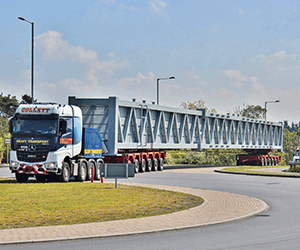But subcontractors and suppliers are footing at least £800m of the bill, according to new research into company accounts by subcontractor body, the Specialist Engineering Contractors’ Group.
One major builder’s accounts even showed that it had withheld 1.5 times more in retention from its supply chain than withheld by its clients.
The choking impact on cashflows of retentions is due to be tackled by Government in proposals set to be published shortly.
SEC Group has been urging the government to introduce legislation to protect or ring-fence cash retentions to remove the insolvency risk and to ensure that retentions are released on time.
This would mirror legislation that already exists in parts of Europe, Australasia and North America.
The analysis of the accounts of the UK’s top 12 construction companies revealed nine firms had separately highlighted retentions owed totalling more than £800m.
SEC Group said this indicated over £1bn of cash retentions were being held. It estimates that in excess of £800m of this figure is in turn being withheld by the majors from their supply chains, the overwhelming majority of whom would have been SMEs.
Professor Rudi Klein, SEC Group’s CEO, said: “There is no other industry sector in the UK where such a large amount of cash is at risk especially for SMEs.
“By the time these monies are released back to SMEs in the supply chain some years would have elapsed. In a high proportion of cases the retention represents the profit element for SMEs”.
SEC Group warns that there is still a significant risk from insolvencies for subcontractors lower down the supply chain.
Since the Government first pledged to look into the issue of retentions two years ago, SEC Group estimates that as much as £100m has been lost by small firms in the supply chain from insolvencies.
“There are a few clients out their like the Highways Agency and Defence Estates in the public sector and John Lewis and Vodafone in the private sector that don’t hold retentions.
“The Government has a real chance to at the least ensure cash is protected, which would keep it on rack to eradicate retentions by 2025.”





















 MPU 300_250px.gif)
































